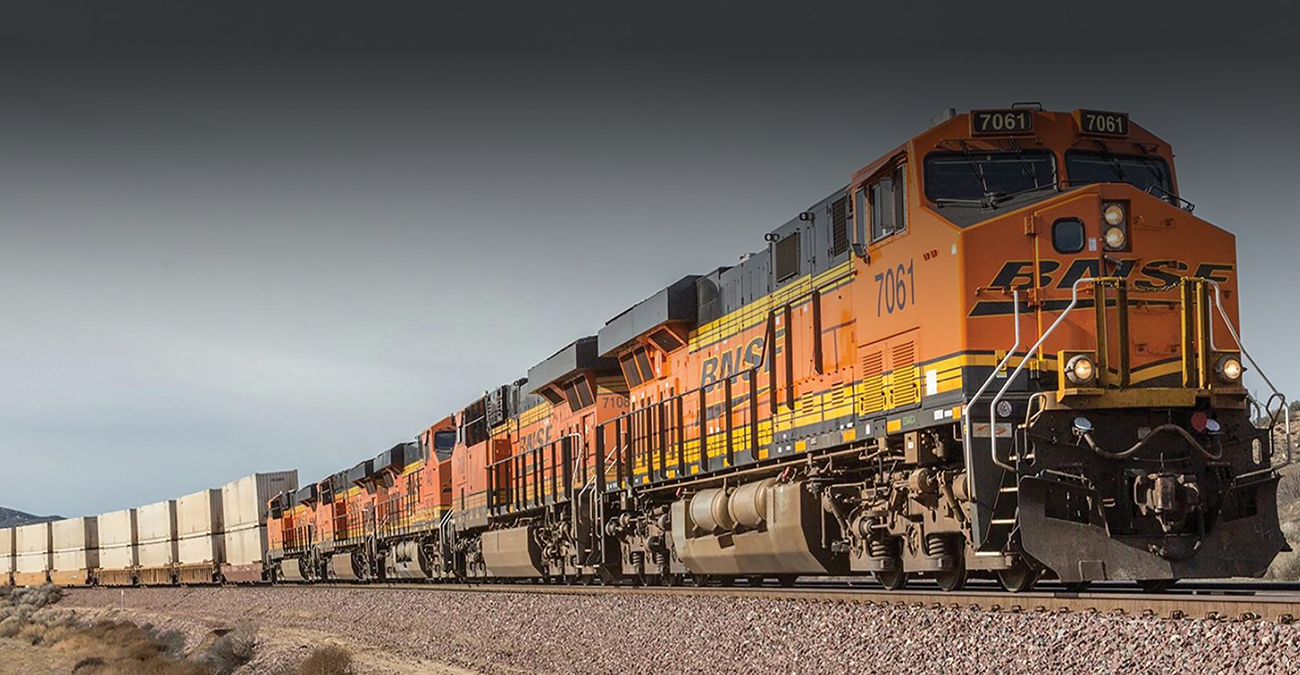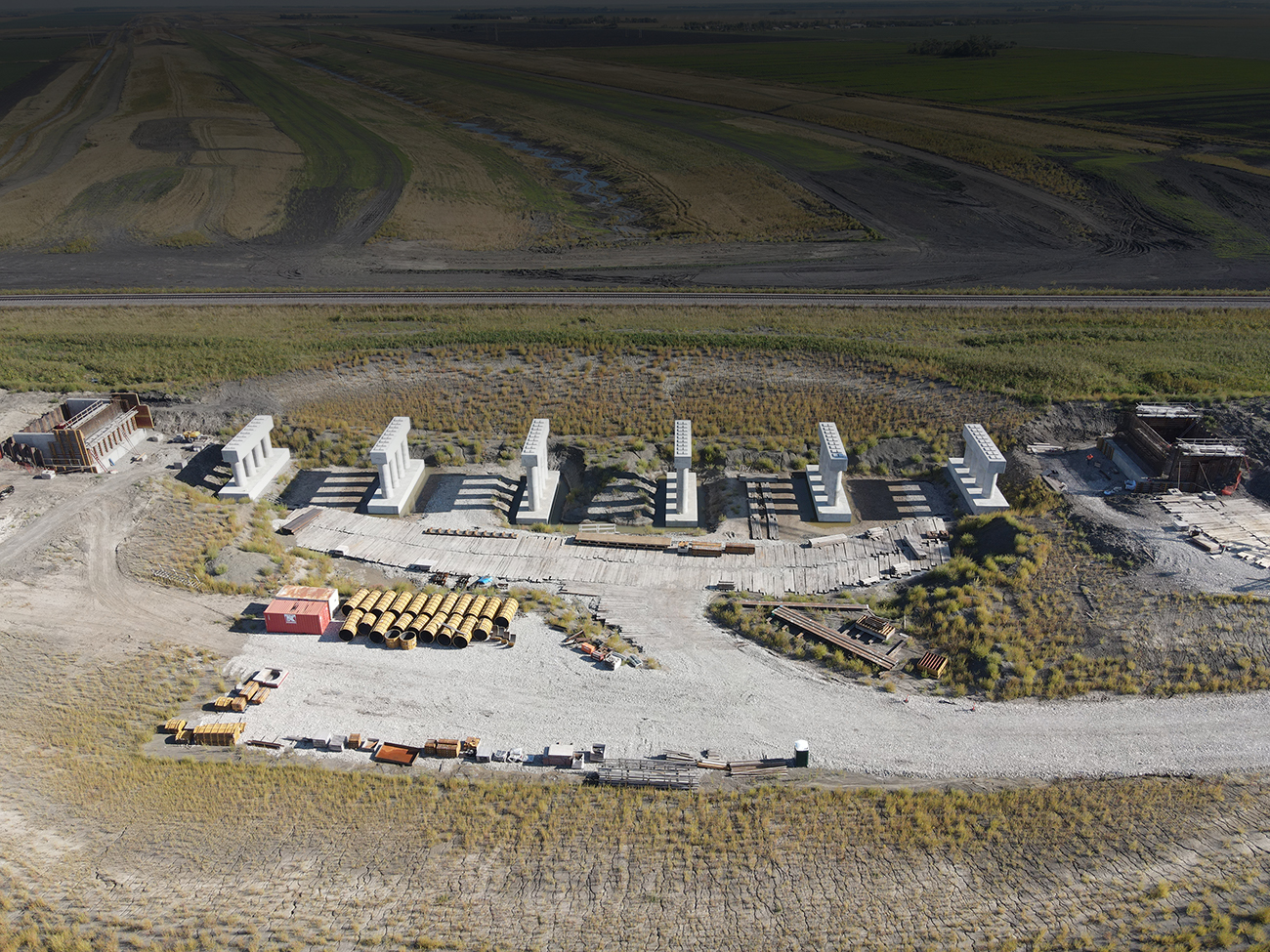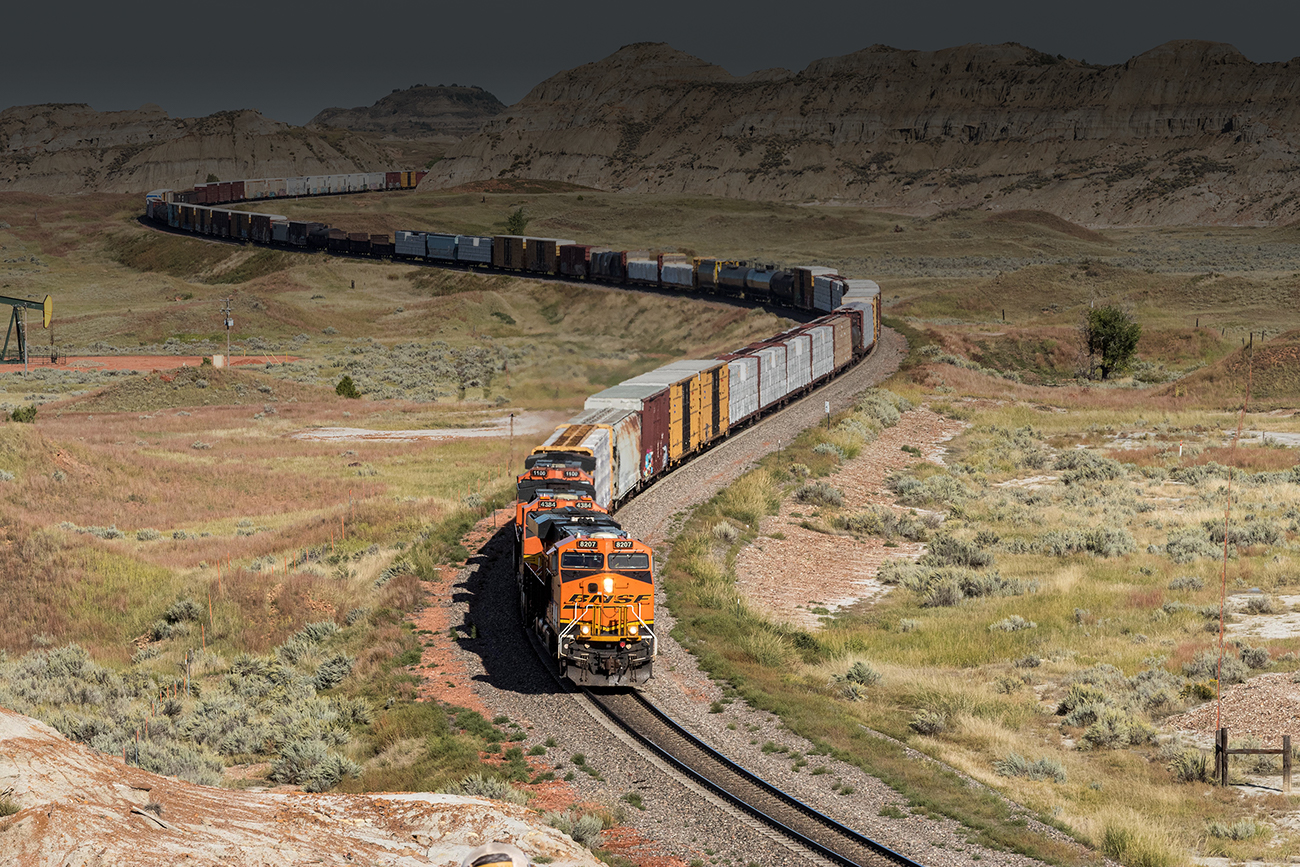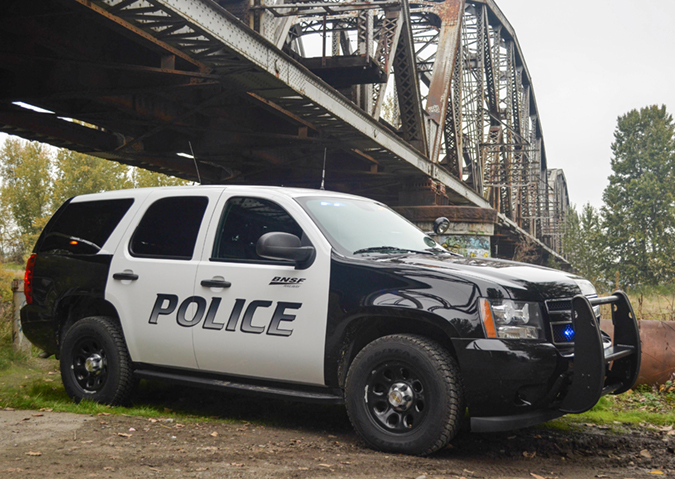
Tracking down trouble: BNSF Police protect the railroad’s people, network and freight
By STEPHEN MANNING
Staff Writer
They have a jurisdiction that’s 32,500 miles long and 100 feet wide, running through cities, mountains, prairies and deserts. Many people don’t know they exist. But wherever the train tracks lead, they’re out there, watching.
They’re the BNSF Railway Police, a specialized law enforcement agency that protects one of the largest freight railroad networks in North America. Their primary job is to protect the people and property on the rail network, which includes the tracks, trains and equipment and the cargo we’re moving for our customers.
In addition to deterring and responding to criminal activity on the network, BNSF Police also work to prevent accidents by promoting safety around train tracks and educating communities about the dangers of being on or near the tracks.
“We’re here to make sure our employees are protected, the railroad’s property is secure, members of the public are safe around our network, and our customers’ freight makes it to its destination,” said BNSF Police Chief Bryan Laurie. “I’m proud of the professionalism and dedication BNSF Police bring to the job every day.”
BNSF police officers, commonly called special agents, get their law enforcement authority from state governments, and they’re also granted interstate authority by federal law. They are commissioned law enforcement officers with full police powers, within the parameters set by state law.
Special agents typically started out at other law enforcement agencies, and they bring that variety of experience to the railroad. They have training that equips them to handle situations unique to the railroad environment. They use a variety of tools and technologies, including data analysis, K9 units, surveillance cameras and drones, to monitor the network, respond to incidents and conduct investigations.
Let’s meet three BNSF special agents who are protecting the rail network in Arizona and New Mexico.
Ebony Harris
Deputy Chief Ebony Harris will reach her eight-year mark with BNSF Police next month. She joined BNSF after seven years with the police department in Dallas, where she served on a task force that focused on high-crime areas, drugs, and felony offenders. While the call volume for railroad police can look different from a major city’s police force, Harris now leads a team that’s responsible for a much larger territory, leading from Vaughn, New Mexico, through northern Arizona to Needles, California.
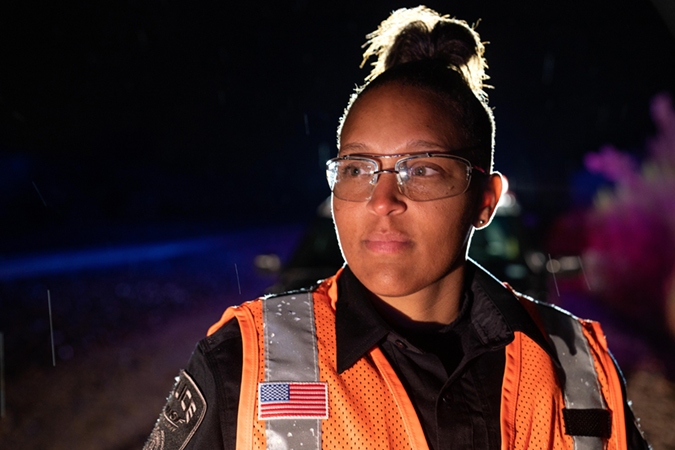
“We’re a unique and diverse police department, with special agents coming from law enforcement agencies across the country,” she said. “Each agent is, in their own way, a subject matter expert. We’re dedicated to the safety of our employees and the efficient delivery of goods. Almost everything the public has in their homes or on their person was likely transported by train at some point. We’re the safekeepers of your things.”
Harris spends a lot of her time on the road, checking on and helping her team of special agents as they protect BNSF’s important Southern Transcon. The famous route brings freight inland from Southern California ports to Chicago. She balances her time between Arizona and New Mexico.
“I don’t like to just sit behind a desk indoors all day,” she said. “I like to get out and about.”
Her team deals with a wide range of issues, from theft to vandalism to trespassing to illegal dumping.
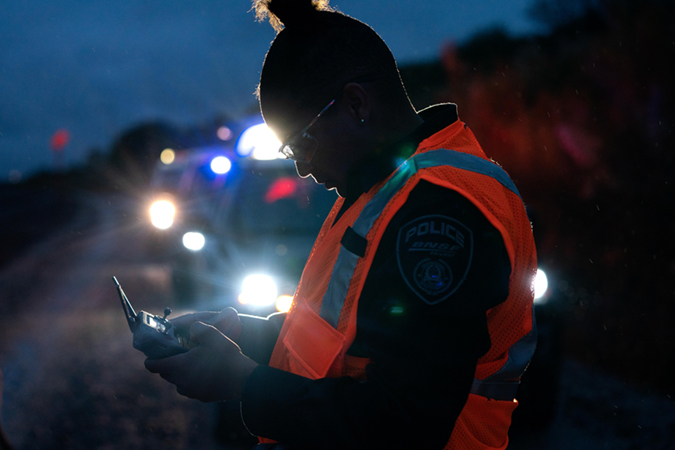
Harris said making connections in communities and interacting with the public are vital for railroad police work.
“We have to get out there and build relationships,” she said. “We need to keep the public informed about what’s going on and encourage them to report anything suspicious. That means attending community meetings, talking to our employees, and making sure everyone knows what we’re up against. So, a lot of it is about education and communication.”
Part of that is being present when communities gather.
“I'm really big on community events and getting out there,” she said. “If our tracks run through a community, we should be a part of it as much as staffing allows. We participate in events like National Night Out, where we set up booths and hand out pamphlets, pencils, coloring books, and Operation Lifesaver gadgets to educate the public about rail safety. We want to be visible and approachable.”
Augie Olivares
Special Agent Augie Olivares served with the Albuquerque, New Mexico, Police Department before coming to BNSF. He’s primarily assigned to New Mexico. Olivares said railroad policing comes with an interesting challenge: protecting assets that move
“The more you know about the trains, the better your policing can be with them,” he said. “You need to learn where they come from, where they go, what they're carrying, how they work, where they stop, and why they stop. It’s different from being a metropolitan police officer. You have more time to lay the snare in the trap for criminal activity on the network. In a metropolitan setting, you really didn't have that proactive time. Here, we have a little more time to watch, set, and learn areas so we can work those problems.”
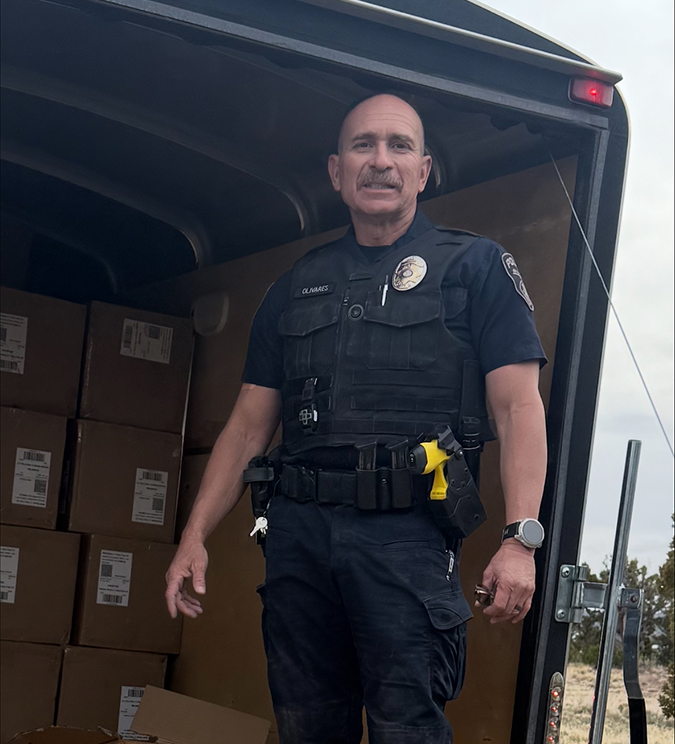
As they learn their territory, special agents are able to identify areas on the network where criminal activity is more likely to occur.
“By doing effective patrol tactics, we can find signs of criminal behavior and set up strategies to anticipate these offenses. We're constantly changing our strategies as the criminals change theirs, always trying to stay one step ahead.”
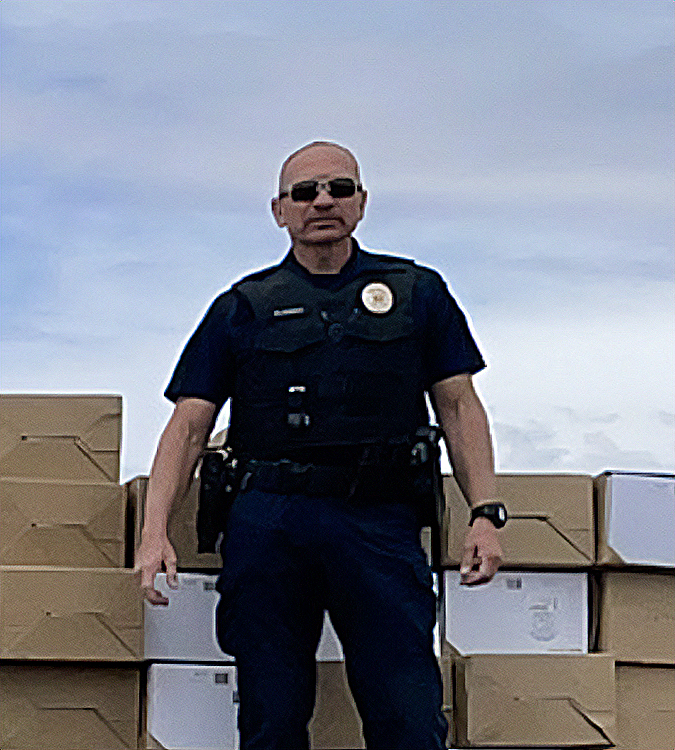
Rick Colbert
Special Agent Rick Colbert joined BNSF after 30 years with the police department in Long Beach, California. Based in Needles, he patrols approximately 100 miles of BNSF track.
Colbert said one difference between protecting a railroad and protecting a city is that it’s less about responding to Priority 1 calls like domestic violence or traffic accidents and more about getting out there on the network and looking for anything out of the ordinary.
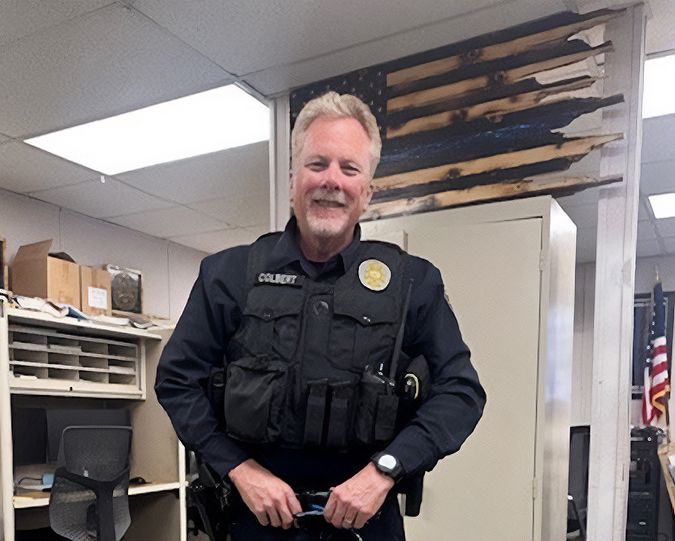
“We’re looking at people who are doing things they shouldn’t be on the network, whether it’s trespassing, stealing from the train and everything in between,” he said. “And then just general patrol, for example making sure no new homeless encampments have been put up and no kids are playing by the tracks. We’re pretty hard on anybody who is trespassing, and especially kids. We’ll take them home, talk to their parents, tell them you gotta keep your kids away from the tracks. It’s really dangerous.”
Because of the size of the territory they’re responsible for, being proactive is key for railroad police.
“It’s not like being in Long Beach, where I got a lot of radio calls,” Colbert said. “Here, I’d say it’s 95 percent self-initiated. You've got to be willing to go out there and dig and find what's going on.
Colbert is proud of the work he’s done to build relationships with other law enforcement agencies. He’s collaborated extensively with agencies including the San Bernardino County Sheriff’s Department, Mojave County Sheriff’s Department, California Highway Patrol, tribal police and city police departments.
“It's really rewarding when you're able to work with these other agencies and get results,” he said.
In Colbert’s view, it takes a certain type of personality to be a good railroad police officer.
“You have to be able to think outside the box to solve problems,” he said. “Probably the most important thing is communication. You've got to be able to communicate with railroad employees, with outside agencies, with the public, and make them aware that you're there to help them and that you're there to work with them.”
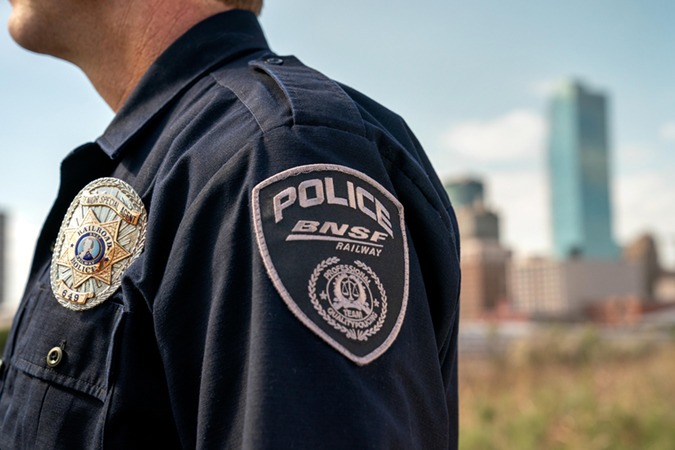
A vital role
These are three of the more than 200 members of the BNSF Police Department who protect the people, assets and freight on the rail network.
“BNSF Police play a vital role in maintaining the safety and security of the railway system and the supply chain,” said Will Johnson, BNSF’s assistant vice president of Resource Protection. “By protecting the rail infrastructure and the people who work and live around it, they help keep the trains running smoothly and efficiently. This ensures goods can be transported safely across the country, which is essential for protecting the U.S. economy and way of life.”
